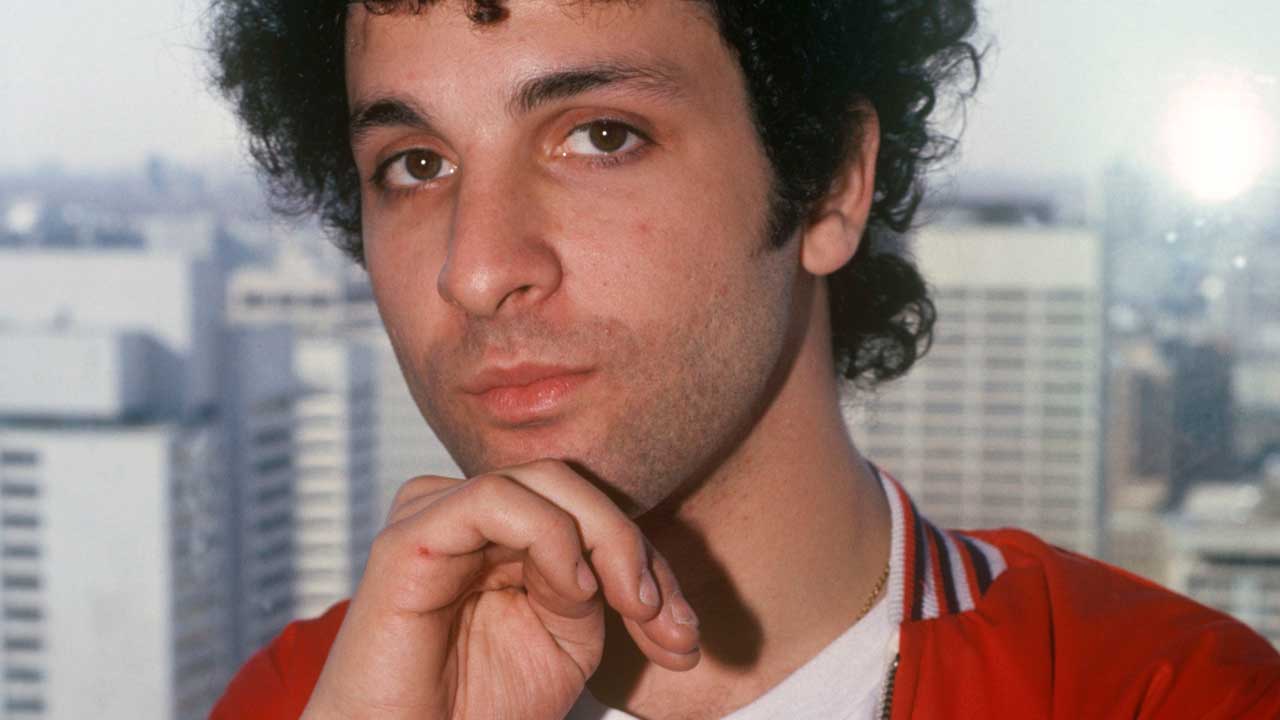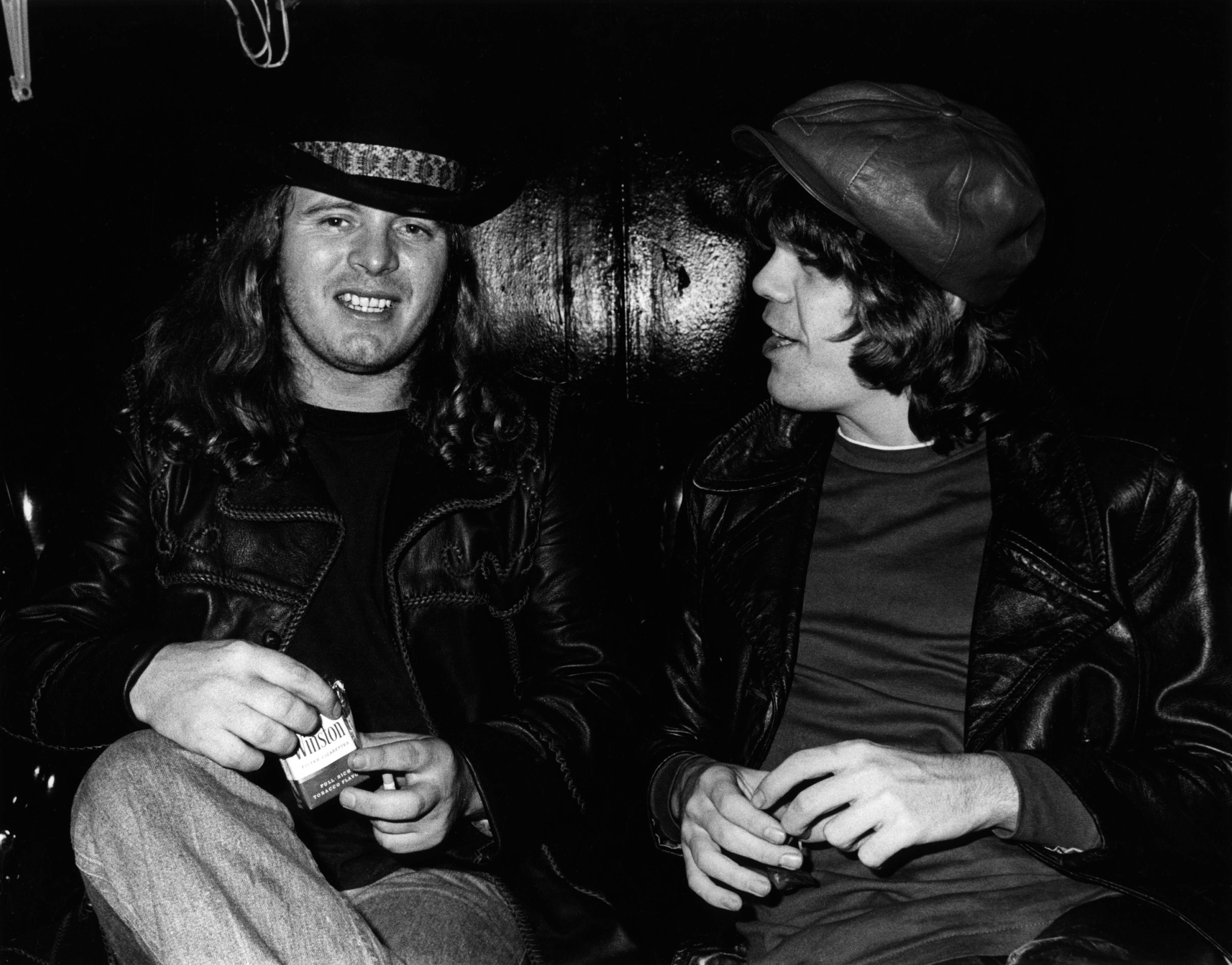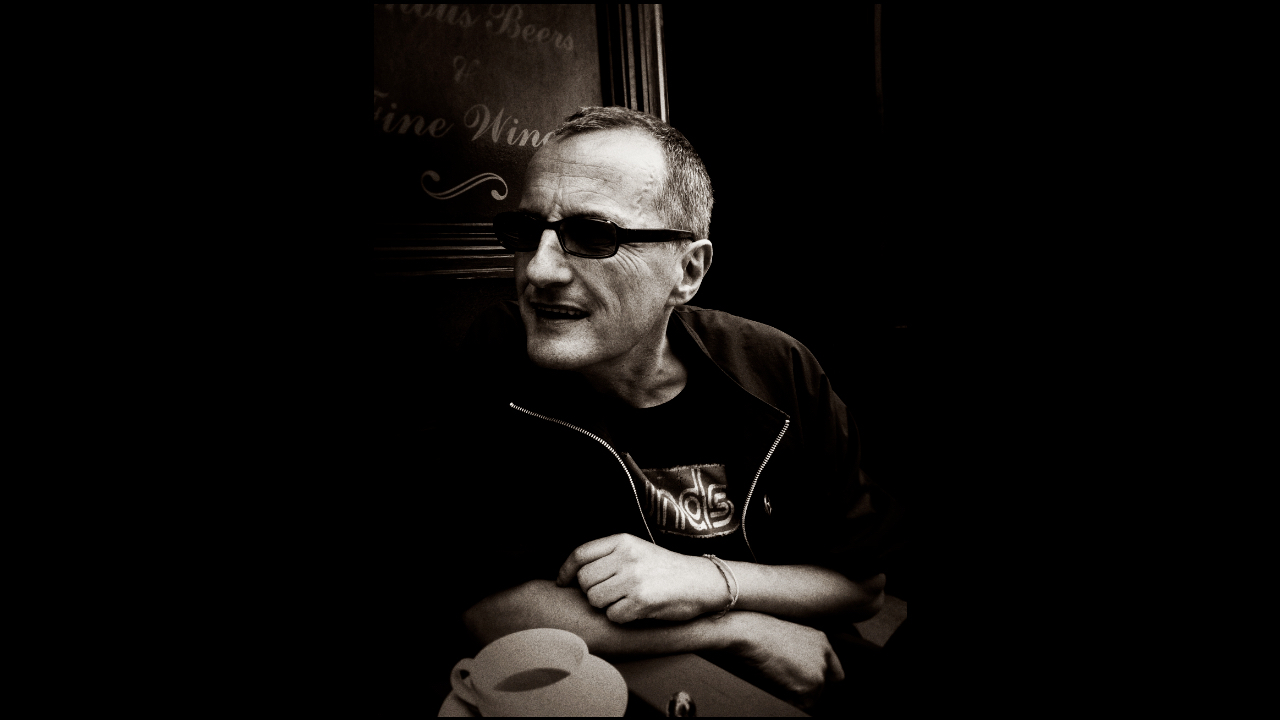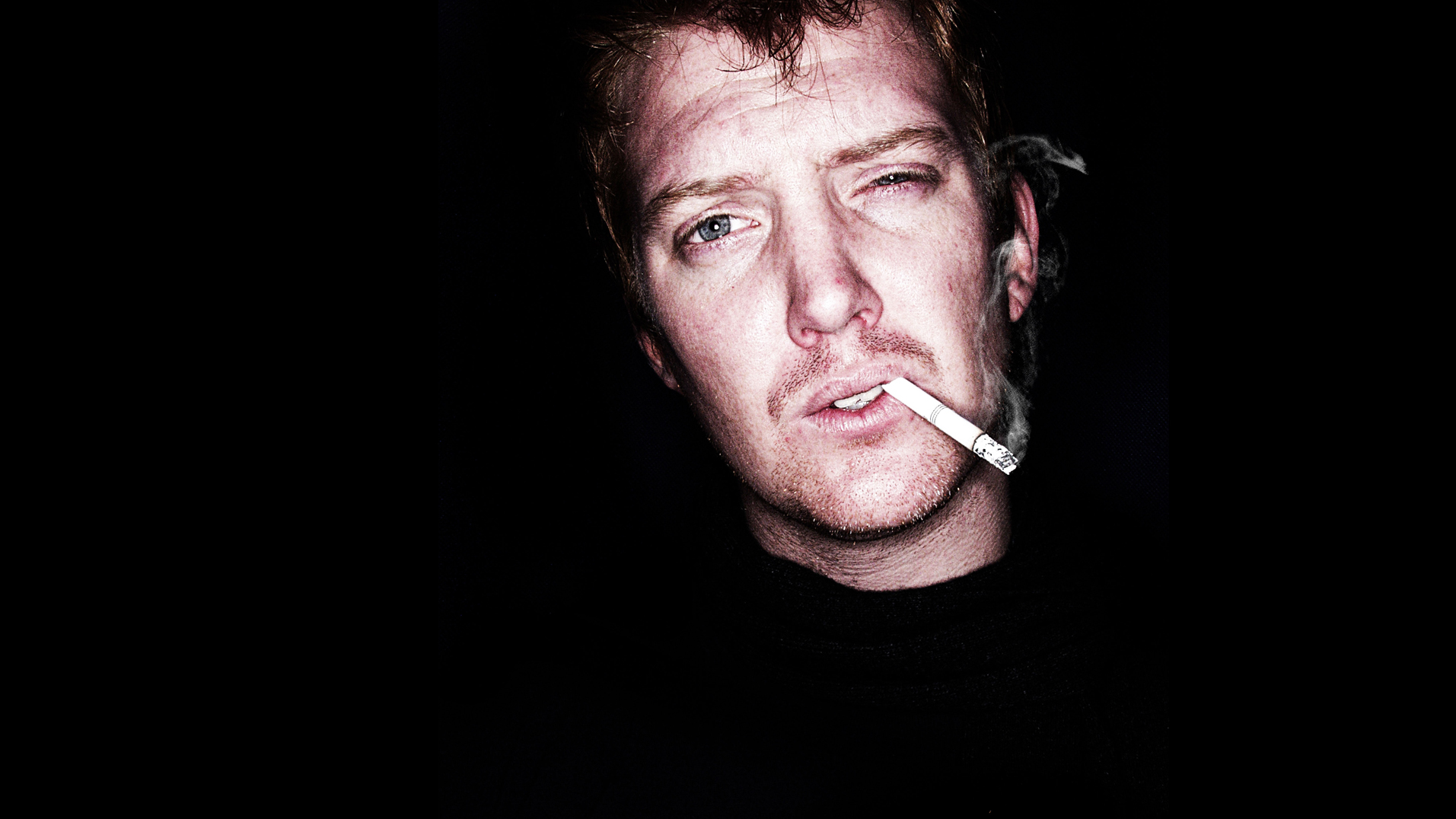Sylvain Sylvain: My stories of Mick Jagger, Brigitte Bardot, Lynyrd Skynyrd and more
New York Dolls guitarist Sylvain Sylvain flashed a leg for John Lennon, nearly joined the Sex Pistols, and had a problem with Kiss. These are just a few of his stories

Select the newsletters you’d like to receive. Then, add your email to sign up.
You are now subscribed
Your newsletter sign-up was successful
Want to add more newsletters?

Every Friday
Louder
Louder’s weekly newsletter is jam-packed with the team’s personal highlights from the last seven days, including features, breaking news, reviews and tons of juicy exclusives from the world of alternative music.

Every Friday
Classic Rock
The Classic Rock newsletter is an essential read for the discerning rock fan. Every week we bring you the news, reviews and the very best features and interviews from our extensive archive. Written by rock fans for rock fans.

Every Friday
Metal Hammer
For the last four decades Metal Hammer has been the world’s greatest metal magazine. Created by metalheads for metalheads, ‘Hammer takes you behind the scenes, closer to the action, and nearer to the bands that you love the most.

Every Friday
Prog
The Prog newsletter brings you the very best of Prog Magazine and our website, every Friday. We'll deliver you the very latest news from the Prog universe, informative features and archive material from Prog’s impressive vault.
Guitarist Syl Sylvain was one of the original members of The New York Dolls, a band who in the 70s cut a swathe through a self-indulgent music scene, with their riotous brand of shambolic, chemically-addled, sexually-ambiguous R&B.
As Syl succinctly put it: “Basically the New York Dolls were a hit because they sold more influence than anybody else. If you could deposit influence into the bank, man I would be a rich son of a bitch!”
Sylvain died in 2021, at the age of 69. These are his stories.

John Lennon
I used to hang out in Central Park. I went to school not too far from there and I would hang out with my mates around the fountain. One day I was at the park and some scout approached me and said: “Hey, man. Would you like to be in a John and Yoko movie?” and I said: “Of course!”
All they did was take a film of your legs, starting from your toes and going up to your waist, and the whole movie is like four hundred legs. The movie was called Up Your Legs Forever. I got paid a dollar, by the way. Anyways, as I was walking out John Lennon was there and he passed me a copy of Screw [notorious 70s intellectual porn magazine]. I think he was hanging around with the publisher, Al Goldstein.
I ran into Lennon again in 1975 during a recording session at the Record Plant in New York. The Dolls were on their last legs and we were in the room recording a demo. I wrote this song called Teenage News and our managers thought it was going to be a smash. But unfortunately Johnny [Thunders] didn’t show up that day and Arthur [Kane] was in a bad way.
So anyway, as I was walking through the hallway I saw John Lennon and I said: “Hey, I was in your movie,” and we started chatting. That’s when he split up with Yoko and was going out with May Pang; she was there too.
Sign up below to get the latest from Classic Rock, plus exclusive special offers, direct to your inbox!
And I said: “Man, let me show you my guitar,” and I showed him my legendary [Gretsch] White Falcon. He picked it up and started strumming it, and told me that he didn’t realise it was so big. I said: “It’s really not a guitar John, it’s a Cadillac.” He had the same birthday as our late drummer, Billy Murcia.
Mick Jagger
The Dolls played a show right behind the Albert Hall, opening up for Status Quo. This was in 1972 when the Melody Maker had put us on the front cover when we were playing in front of a couple of hundred kids in New York City. We didn’t have a record deal and were being scouted by a lot of A&Rs.
One of the record companies checking us out was the Rolling Stones’ label, Sticky Fingers, and they sent Mick Jagger down to check us out. He passed on us. Probably thought we were a bunch of crap. The last time we were in France there were people following Johansen around convinced he was Jagger and begging for an autograph. Poor guy!
Kiss
We got booked with Kiss for a glitter rock tour and we were the headliners. We played with Kiss in bars in the early days when they were a sort of a cowboy kind of a band and we also used to rehearse in the same place. They couldn’t believe that our rehearsals were as crowded as our gigs and that we were getting all this press.
Of course, they jumped into that whole make-up thing, which was very different to us. Maybe they got the idea from us. The way I would describe the difference, it’s like we’re going to art school, messing up with make-up and sexuality, and they were basically truck drivers who decided: “Oh, hey dude, I can do this as well!”
It’s very manly and macho. I have a problem with it if you dig that stuff after the age of six. It’s infantile. When people write books about that era I don’t think Kiss are mentioned, so as far as I’m concerned they have nothing to do with the revolution that the Dolls created.
Lynyrd Skynyrd
Skynyrd opened up for us at a show in Springfield, Missouri and they came to our dressing room. A lot of that was probably down to the fact that we had a lot more booze in our dressing room. I remember they came in the first thing they said was: “You boys boogie like hell!”
We hung out and got smashed together and that’s when they kinda accepted us, which seems to be the southern way. Actually, now I live in Atlanta, Georgia and I can seriously speak the lingo.

Brigitte Bardot
I worked in this boutique called The Different Drummer in New York during the late 60s, and across the street was this toy repair shop called The New York Dolls Hospital, which is where I got the name for the band. One day some limousines pull up outside the shop and who comes out? Brigitte Bardot! And who’s the only chap in the shop who speaks French? Mr Syl Sylvain! I was brought up in France and speak the language fluently.
So Brigitte is there with a couple of girlfriends and I start selling her all this stuff – and she was buying everything in our smallest size. And at one point Brigitte calls me into the dressing room because she can’t pull up the zipper on her jeans, so I had to help her. Which was very enjoyable for a young guy like me. So anyway, they leave after buying thousands of dollars’ worth of stuff and my boss is really happy with me, patting me on the back.
A couple of hours pass and we get the phone call and it’s Brigitte asking for me. So I’m talking on the phone, and of course I’m speaking in French. She’s telling me that she has to come back and trade all the things that she bought just for a different colour, because her girlfriend bought identical stuff in the same colour. She tells me to bag up everything for her to pick up. When I got off the phone my boss is asking me: “What did she say?” I told him that she asked me out on a date. They totally freaked out.
Lou Reed
We were supposed to support Lou Reed at a show during our first British tour and we travelled all the way to Liverpool to play with him. This was a week before Billy Murcia passed away. He was not in good shape to do all that travelling. An hour before the show we were told it was cancelled by one of Lou’s road crew. I still can’t figure out why he did that.
It taught us that it wasn’t going to be that easy even with people that we were influenced by and who we actually opened up the doors for to give them secondary careers. We used to bump shoulders with Lou in Max’s Kansas City when the Dolls would sell out six nights in a row. It was a bitter-sweet deal. But that was old, stupid Lou Reed. He was a little bit of a limp dick in those days.
Malcom McLaren
I was in the schmutter [clothing] business and had a company called Truth And Soul back in ’71 which I set up with Billy Murcia. We would go to trade shows, and I remember one time in New York seeing this stall down the hallway called Let It Rock run by this British couple who turned out to be Malcolm McLaren and Vivienne Westwood. It sold Teddy boy – or, if you use the American term, rockabilly – paraphernalia. They had all the baby-blue jackets with the black velvet trim, the creeper shoes… I was in love with that stuff!
I told David [Johansen] and Johnny to come over on Sunday and we could buy some samples, and we bought some stuff off Malcolm and Vivienne. By this time the Dolls were playing at the Mercer Arts Centre. We invited them down and they instantly fell in love with the band. Fast-forward to 1975 and I ran into Malcolm and he said: “Hey, what’s happening with the Dolls?” This was right after the Teenage News demo, which didn’t happen, and Johnny and Arthur had gone to rehab; we were all over the place and our managers were ripping us apart.
He felt it was a shame, because he was convinced that we were going to be the next big thing. So he took us on. He was more a personal friend than a manager. He got us a loft to rehearse in right next door to the Chelsea Hotel – which was handy if you’d had a scuffle with your girlfriend and had nowhere to stay. Me and David wrote a song called Red Patent Leather, and initially we decided to get red leather shoes.
This evolved into red outfits, a kooky combination of styles from different eras, designed by Vivienne. And then David and Malcolm, who hadn’t much communication up until that point, turned to each other, eyes gleaming, and said: “Okay, let’s have a communist red flag in our set.” Which was basically the worst thing we could have done. We got totally blackballed after that. It was basically the end of the Dolls.
The Sex Pistols
Did you know the Sex Pistols were supposed to be my band? When the Dolls split up during our Red Patent Leather period, we ended up stranded in a trailer park motel in Florida, and me and McLaren ended up going on a tour of the States in a station wagon.
It was during this time when we stayed in New Orleans, Malcolm said: “Syl, there’s all these kids hanging outside Vivienne’s shop, and we could put a band together for you,” blah, blah, blah. And he convinced me to give him my white Les Paul I had with a decal of a 1950s chick on a record, and a Fender Rhodes piano in exchange for a plane ticket to England so I could join the band.
There’s a letter that Malcolm sent to me which goes on for seven pages saying: “Come to England, this is your band.” There are these booth photos of these guys, and underneath one it says: “We’re thinking of calling this guy Johnny Rotten. He can’t sing but he’s definitely a better singer than Johansen!’ At the time, I have to admit that I wasn’t that interested because I was getting plenty of work and starting up a new band with David.
"But I’m still waiting for that plane ticket [laughs]. Malcolm gave the guitar to Steve Jones, and in recent years whenever we’ve been in LA we’ve gone on his radio shows and he always asks me: “Hey, mate, where can I get more of those Les Pauls?” He’s made a career of buying those guitars, finding the stickers and selling them, saying: “This is the one.”
The original version of this feature appeared in Classic Rock 144, in March 2010.
Pete Makowski joined Sounds music weekly aged 15 as a messenger boy, and was soon reviewing albums and doing interviews with his favourite bands. He also wrote for Kerrang!, Soundcheck, Metal Hammer and This Is Rock, and was a press officer for Black Sabbath, Hawkwind, Motörhead, the New York Dolls and more. Sounds Editor Geoff Barton introduced Makowski to photographer Ross Halfin with the words, “You’ll be bad for each other,” creating a partnership that spanned three decades. Halfin and Makowski worked on dozens of articles for Classic Rock in the 00-10s, bringing back stories that crackled with humour and insight. Pete died in November 2021.

